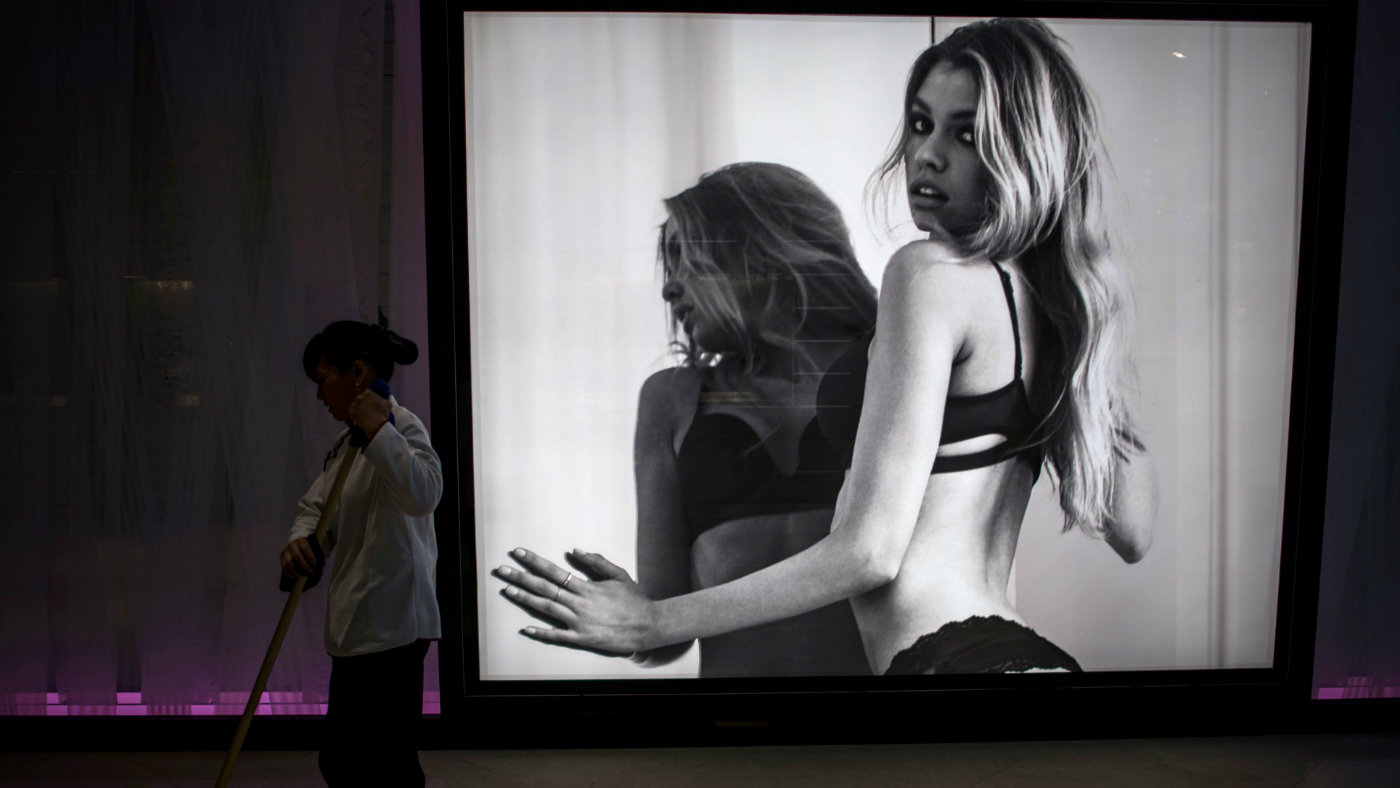Stockholm bans ‘sexist and racist’ advertising
Under the new rules, ads on public billboards in the Swedish capital can be removed within 24 hours

A free daily email with the biggest news stories of the day – and the best features from TheWeek.com
You are now subscribed
Your newsletter sign-up was successful
Stockholm’s city council has voted to ban adverts deemed sexist or racist from public billboards in the Swedish capital.
Under the new law, due to come into effect within a month, authorities can remove any material which presents women or men as sex objects or shows a stereotypical image of gender roles.
Green Party deputy mayor and architect of the legislation, Daniel Hellden, said he hoped city authorities would not need to enforce the law.
The Week
Escape your echo chamber. Get the facts behind the news, plus analysis from multiple perspectives.

Sign up for The Week's Free Newsletters
From our morning news briefing to a weekly Good News Newsletter, get the best of The Week delivered directly to your inbox.
From our morning news briefing to a weekly Good News Newsletter, get the best of The Week delivered directly to your inbox.
“Maybe the companies won’t put up ads which are sexist or objectifying if they know we’re going to remove them after 24 hours," he said. "So, if it’s working well, we won’t have to use this legislation.”
But the law has come under fire from the Association of Swedish Advertisers, which fears a ban will increase red tape and curb freedom of expression, the BBC reports.
Its chief executive, Anders Ericson, argues that despite complaints from what he describes as “a really strong group of feminists”, Sweden is already doing “a really terrific job” in self-regulation.
Sweden is regularly ranked near the top of global gender equality indexes, but a 2016 study by the non-partisan Swedish Women's Lobby labelled it the “worst Nordic country” at tackling sexism in advertising, The Local reports.
A free daily email with the biggest news stories of the day – and the best features from TheWeek.com
The legislation follows similar crackdowns in other European cities, including Paris and Geneva. In 2016, adverts promoting negative body images were banned across the transport network in London.
The latest move was welcomed by feminist campaigners in the UK, including Lucy-Anne Holmes, founder of the No More Page 3 campaign.
“It’s brilliant,” she told Broadly. “Images are powerful and sexist ads are damaging and also very dull.”
“This feels like a step in the right direction, although it is shame that legislation is needed,” Holmes added. “You would hope we would be beyond sexist ads by now.”
-
 Is Andrew’s arrest the end for the monarchy?
Is Andrew’s arrest the end for the monarchy?Today's Big Question The King has distanced the Royal Family from his disgraced brother but a ‘fit of revolutionary disgust’ could still wipe them out
-
 Quiz of The Week: 14 – 20 February
Quiz of The Week: 14 – 20 FebruaryQuiz Have you been paying attention to The Week’s news?
-
 The Week Unwrapped: Do the Freemasons have too much sway in the police force?
The Week Unwrapped: Do the Freemasons have too much sway in the police force?Podcast Plus, what does the growing popularity of prediction markets mean for the future? And why are UK film and TV workers struggling?
-
 What is hepeating?
What is hepeating?In the Spotlight ‘Many women’ recognise this harmful workplace behaviour and various studies show evidence of it
-
 Labour shortages: the ‘most urgent problem’ facing the UK economy right now
Labour shortages: the ‘most urgent problem’ facing the UK economy right nowSpeed Read Britain is currently in the grip of an ‘employment crisis’
-
 Will the energy war hurt Europe more than Russia?
Will the energy war hurt Europe more than Russia?Speed Read European Commission proposes a total ban on Russian oil
-
 Will Elon Musk manage to take over Twitter?
Will Elon Musk manage to take over Twitter?Speed Read The world’s richest man has launched a hostile takeover bid worth $43bn
-
 Shoppers urged not to buy into dodgy Black Friday deals
Shoppers urged not to buy into dodgy Black Friday dealsSpeed Read Consumer watchdog says better prices can be had on most of the so-called bargain offers
-
 The Bank of England official warning women against home working
The Bank of England official warning women against home workingIn the Spotlight Not returning to the office will result in ‘two track’ career development, senior policymaker claims
-
 Ryanair: readying for departure from London
Ryanair: readying for departure from LondonSpeed Read Plans to delist Ryanair from the London Stock Exchange could spell ‘another blow’ to the ‘dwindling’ London market
-
 Out of fashion: Asos ‘curse’ has struck again
Out of fashion: Asos ‘curse’ has struck againSpeed Read Share price tumbles following the departure of CEO Nick Beighton